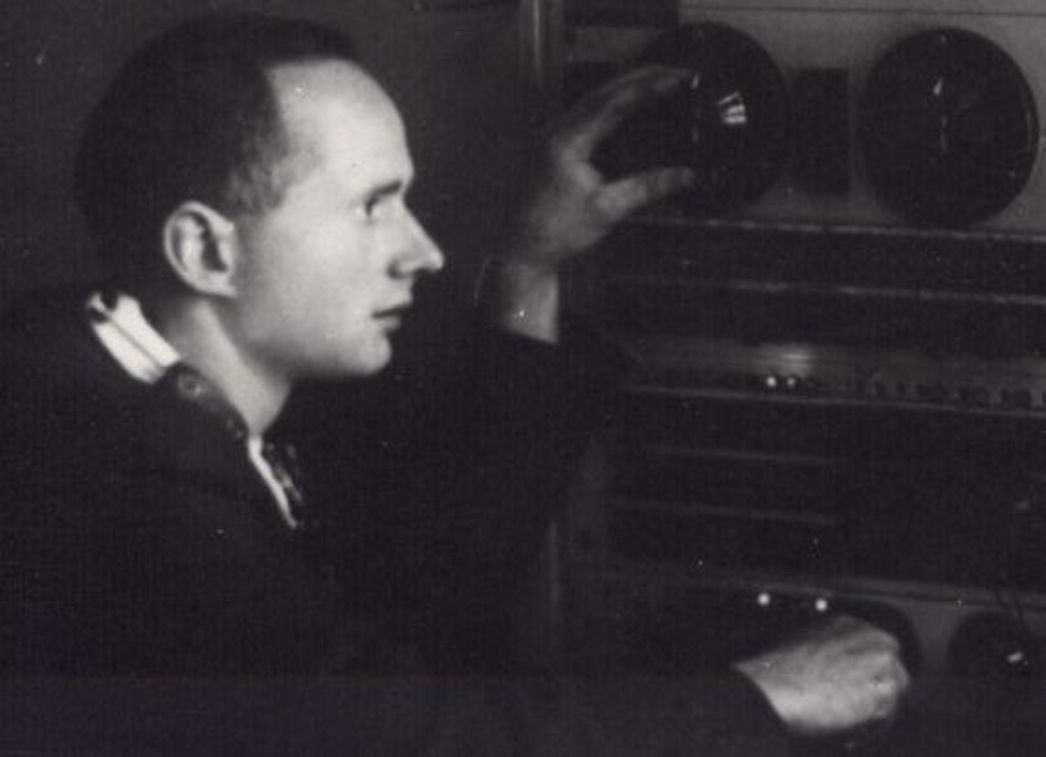Transcript
Narrator Already as an adolescent, Feliks Grześkowiak was keen on everything that had to do with electronics, especially radio technology. And it was a radio that was his undoing.
Feliks grew up in the region of Western Poland that was annexed by the German Reich as the “Reichsgau Wartheland” immediately following occupation by the Wehrmacht. He served an apprenticeship in an electronics firm and illicitly built a radio receiver. The Gestapo discovered the device and arrested him in May 1940, shortly before his nineteenth birthday. For several months he was held in the notorious Fort VII in Posen used by the Germans as a transit camp. In mid August 1940 he was taken to Buchenwald on a transport of nearly five-hundred prisoners from the “Warthegau” and registered as political inmate number 3018.
Feliks was initially put to work in the so-called nursery, one of the harshest labour detachments in the camp. A few weeks later, he was fortunate enough to be assigned to the electricians’ detachment of the Deutsche Ausrüstungswerke, DAW for short.
The kapo of this detachment, the German political inmate Hans Lehmann, evidently had a lot of confidence in his young Polish fellow inmate’s abilities, because one day he approached Grześkowiak with a delicate request: telephone connections were to be installed secretly in the inmates’ camp. What is more, a new telephone exchange was required, at which the additional lines would converge. Grześkowiak later wrote:
Feliks Grześkowiak “I voluntarily and gladly accepted the proposal … to build an illegal, secret switchboard in the camp. Hans Lehmann … promised to obtain the necessary material.”
Narrator The inmates’ library supplied books on telephone technology.
The secret phone exchange was set up in the tuberculosis isolation barrack at the edge of the inmate’s infirmary. This barrack was especially well-suited to serve as a hiding place: SS men hardly ever entered it for fear of contagion.
Feliks Grześkowiak “The wiring presented the greatest difficulty. The lines were ‘audaciously’ stretched from mast to mast, right under the electrical wiring, and in open spaces I buried them in the ground.”
Narrator The phone connections allowed the inmate functionaries in different areas of the camp to contact one another inconspicuously. For example, it gave them a means of informing one another when which SS men had entered the camp and where they were headed.
Feliks Grześkowiak initially ran the telephone system alone; when the network was expanded, he received help at the switchboard.
Feliks Grześkowiak “I later obtained larger amounts of wiring [from] the railway construction site. The makeshift line [hung] from the trees along the railway line built to Schöndorf, and it often broke. At the time, I was also assigned to repair … that line.”
Narrator The work on the telephone system was dangerous, but the task also helped Grześkowiak survive his time in the camp.
Feliks Grześkowiak returned to Poland in late 1945. He married the following year; the couple had three sons. Feliks worked at the Zgorzelec coal power station for a short time; later the family moved to Nowy Tomyśl, a district capital west of Poznań, where he ran a small electronics shop – and spent most of his time repairing radios.


